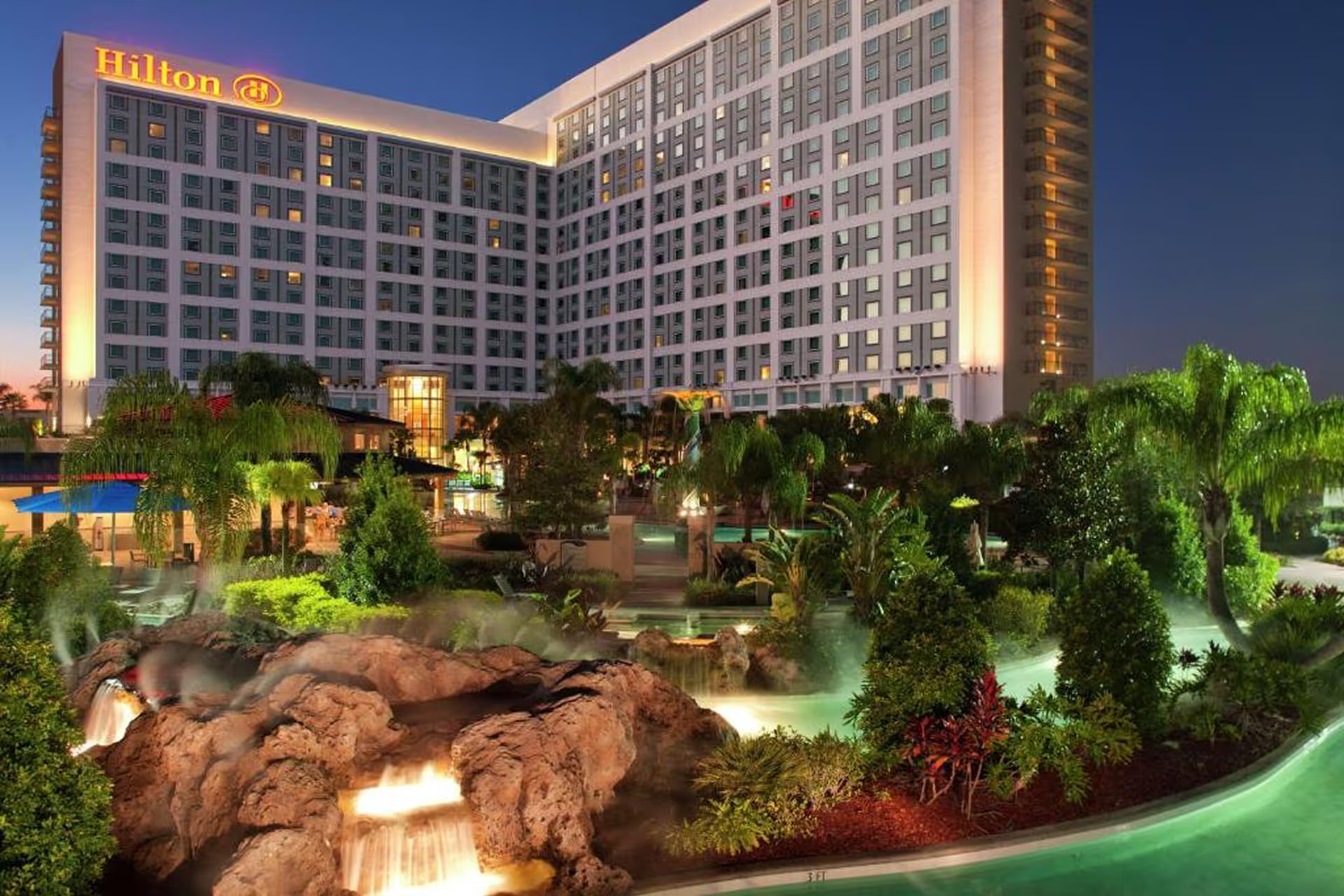Hotel PIP (Property Improvement Plan) Fulfillment: A Complete Guide for Hotel Owners
.svg)
September 3rd, 2025
.svg)
8 min.
.avif)
Property Improvement Plans (PIPs) represent one of the most significant financial and operational challenges hotel owners face. These mandatory renovation requirements, issued by major hotel brands like Marriott, Hilton, and IHG, can cost anywhere from hundreds of thousands to millions of dollars and must be completed within strict timeframes.
For many hotel owners, receiving a PIP notice can feel overwhelming. The extensive requirements, tight deadlines, and substantial investment required demand careful planning and expert execution. However, with proper understanding and the right construction partner, PIP fulfillment can actually enhance your property's value, improve guest satisfaction, and strengthen your relationship with your franchise brand.
At King Construction USA, we've helped countless hotel owners successfully navigate the PIP process across all major hotel brands. This comprehensive guide shares our expertise to help you understand what PIPs entail, how to plan for them, and how to execute them successfully while minimizing disruption to your operations.
For a broader overview of hotel renovations, see our Complete Guide to Hotel Renovations.
Understanding Property Improvement Plans (PIPs)
Property Improvement Plans are comprehensive renovation mandates issued by hotel franchise brands to ensure properties maintain current brand standards. PIPs typically occur every 5-7 years as part of the franchise agreement, though they may be triggered earlier if a property falls below brand performance standards or guest satisfaction scores.
PIPs cover multiple areas including guest rooms, public spaces, exterior improvements, technology upgrades, and operational enhancements. The scope can range from minor updates like new bedding and paint to major renovations involving complete room redesigns, lobby overhauls, and infrastructure upgrades.
Each brand has specific criteria for triggering PIPs, including property age, guest satisfaction scores, revenue performance, and competitive market conditions. Understanding these triggers can help owners anticipate and budget for upcoming PIP requirements.
Major Brand PIP Requirements and Differences
Marriott PIPs typically focus heavily on technology integration, including mobile key compatibility, high-speed internet upgrades, and modern in-room entertainment systems. Marriott also emphasizes sustainability initiatives and accessibility compliance in their PIP requirements.
Hilton PIPs often prioritize guest room comfort and functionality, with specific requirements for bedding, lighting, and workspace areas. Hilton's "Connected Room" technology requirements are becoming increasingly common in PIP mandates.
IHG PIPs frequently emphasize public space improvements and food & beverage upgrades, reflecting the brand's focus on creating social gathering spaces. IHG also has specific requirements for exterior signage and curb appeal improvements.
Understanding your specific brand's priorities and typical PIP components helps in both budgeting and selecting contractors with relevant experience.
PIP Timeline and Compliance Requirements
Most PIPs must be completed within 12-18 months from the notice date, though complex projects may receive extended timelines. The compliance process involves multiple stages: initial review, design approval, construction documentation, and final brand inspection.
Critical deadlines include design submission (typically 90 days from PIP notice), construction start date, and final completion deadline. Missing these milestones can result in significant penalties, including potential franchise termination in extreme cases.
Successful PIP compliance requires early engagement with approved vendors, prompt design submissions, and maintaining detailed documentation throughout the construction process. Working with contractors experienced in brand approval processes significantly reduces the risk of delays or rejections.
Budgeting and Cost Management Strategies
PIP costs vary widely based on property size, scope of work, and market conditions. Guest room renovations typically range from $8,000-$25,000 per room, while public space improvements can add hundreds of thousands to the total project cost.
Effective cost management starts with early budget development and value engineering. Experienced contractors can suggest cost-effective alternatives that meet brand requirements while optimizing your investment. Consider factors like bulk purchasing, phased construction schedules, and off-season timing to reduce overall costs.
Many hotels find that proactive renovations, completed before PIP mandates, cost 15-20% less than reactive compliance projects due to better timing and reduced urgency premiums.
Managing Construction During Hotel Operations
One of the biggest challenges in PIP fulfillment is maintaining hotel operations during construction. Unlike ground-up construction, hotel renovations must accommodate ongoing guest services, staff operations, and revenue generation.
Successful occupied renovations require careful phasing, strategic room blocking, and clear communication protocols. The best approach typically involves renovating one floor or section at a time, maintaining adequate inventory for guest accommodations while construction proceeds.
Noise management, dust control, and maintaining professional appearances in public areas are crucial for preserving guest satisfaction during construction. Experienced hospitality contractors understand these unique requirements and plan accordingly.
Working with Brand-Approved Vendors and Contractors
Hotel brands maintain lists of approved vendors and contractors who understand specific brand requirements and approval processes. Working with approved partners streamlines the design review process and reduces the risk of compliance issues.
When selecting contractors, prioritize those with extensive experience in your hotel brand, proven track records with PIP projects, and strong relationships with brand representatives. The right contractor should handle brand communications, manage approval processes, and ensure all work meets brand standards.
At King Construction, our team has extensive experience with all major hotel brands and maintains the relationships necessary to ensure smooth PIP project execution.
Technology Integration and Modern Requirements
Modern PIPs increasingly emphasize technology integration, from high-speed WiFi and mobile connectivity to smart room controls and contactless services. These technology requirements often represent a significant portion of PIP budgets and require specialized expertise.
Key technology considerations include network infrastructure upgrades, in-room entertainment systems, property management system integration, and mobile app compatibility. Planning for future technology needs during PIP renovations can extend the time before the next major upgrade cycle.
Working with contractors who understand both construction and technology integration ensures these complex systems are properly installed and functioning before brand inspections.
Post-Completion and Ongoing Maintenance
Successful PIP completion involves more than just finishing construction. Final brand inspections, warranty management, and ongoing maintenance planning are crucial for protecting your investment and maintaining brand compliance.
Establish preventive maintenance schedules for new systems and finishes to extend their lifespan and maintain appearance standards. Document all warranties and ensure staff understand proper care procedures for new amenities and technology.
Regular property assessments can help identify potential issues before they become compliance problems, potentially reducing the scope of future PIP requirements.
Conclusion
Property Improvement Plan fulfillment represents a significant investment in your hotel's future success. While the process can seem daunting, proper planning, experienced contractors, and clear understanding of brand requirements can turn PIP compliance into an opportunity to enhance your property's competitive position.
The key to successful PIP projects lies in early planning, selecting the right construction partner, and maintaining open communication with your franchise brand throughout the process. Hotels that approach PIPs strategically often find that these renovations not only meet compliance requirements but also drive improved guest satisfaction, increased revenues, and enhanced property value.
Remember that PIP fulfillment is not just about meeting minimum brand requirements—it's an opportunity to position your property for long-term success in an increasingly competitive hospitality market. With the right approach and experienced partners, your PIP project can become a catalyst for improved performance and guest loyalty.
Ready to start your hotel PIP project? King Construction USA brings the expertise and brand relationships necessary to ensure successful, on-time, and on-budget PIP fulfillment. Contact us today to discuss your upcoming renovation requirements.
For more insights on hotel renovations, return to our Complete Guide to Hotel Renovations for additional resources and expert guidance.







